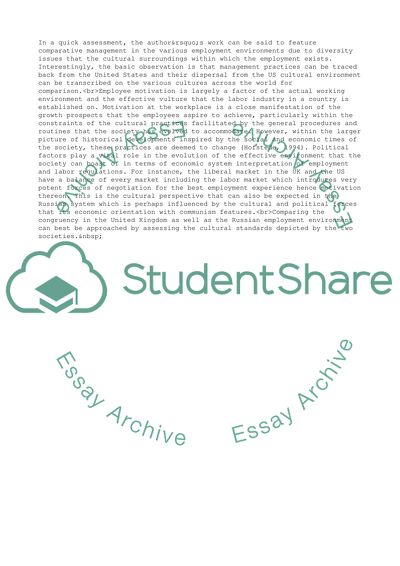Cite this document
(Differences in Motivational Patterns of UK and Russian Employees Research Paper, n.d.)
Differences in Motivational Patterns of UK and Russian Employees Research Paper. Retrieved from https://studentshare.org/management/1752492-differences-in-motivational-patterns-of-uk-and-russian-employees
Differences in Motivational Patterns of UK and Russian Employees Research Paper. Retrieved from https://studentshare.org/management/1752492-differences-in-motivational-patterns-of-uk-and-russian-employees
(Differences in Motivational Patterns of UK and Russian Employees Research Paper)
Differences in Motivational Patterns of UK and Russian Employees Research Paper. https://studentshare.org/management/1752492-differences-in-motivational-patterns-of-uk-and-russian-employees.
Differences in Motivational Patterns of UK and Russian Employees Research Paper. https://studentshare.org/management/1752492-differences-in-motivational-patterns-of-uk-and-russian-employees.
“Differences in Motivational Patterns of UK and Russian Employees Research Paper”, n.d. https://studentshare.org/management/1752492-differences-in-motivational-patterns-of-uk-and-russian-employees.


